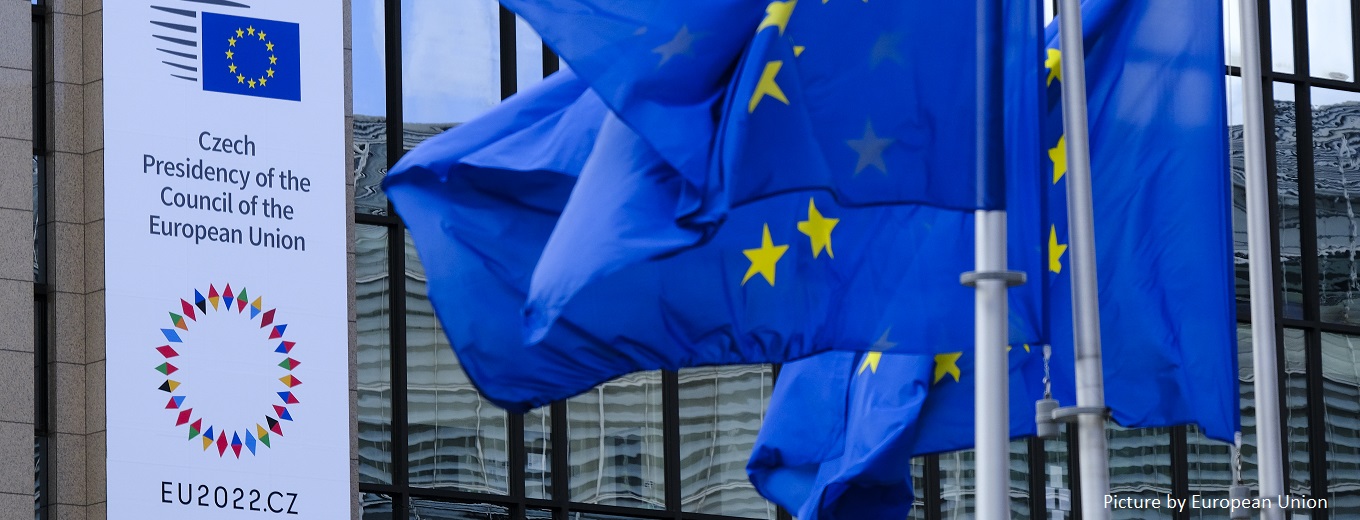The EU education ministers adopted new policy actions to improve the pathways to school success for pupils and their well-being in digital education.
On 28 November 2022, the European Council on Education, Youth, Culture and Sports (EYCS) met in Brussels, chaired by Vladimir Balaš, Czech Minister for Education, Youth and Sport. This was the last meeting of the education, youth and culture ministers under the current Czech Presidency of the Council of the EU. On the agenda were two topics of strong relevance for the European Education Area (EEA): First, the ministers adopted a new Council recommendation on Pathways to School Success, and second, Council conclusions on supporting well-being in digital education. Both proposals were adopted unanimously.
The Council recommendation on Pathways to School Success aims to address early school leaving, building on and replacing the Council Recommendation on policies to reduce early school leaving from 28 June 2011. This topic corresponds to one of the main targets of the EEA, to be achieved by 2030, to lower the percentage of pupils leaving mandatory school education early to less than 9%. The previous target for 2020 was to reduce this number to less than 10%, which was just about achieved (cf. Eurostat). The target of 9% by 2030 from 9.7% in 2021 is less ambitious. Nevertheless, the new Recommendation should contribute to achieving this target across the EU. Additionally, the policy intends to improve basic achievement in reading, mathematics and science. The corresponding EEA target aims to lower the percentage of low-achievers in these fields to below 15%. Progress on this is, however, particularly slow (at 22-23% currently), and significant differences between EU Member States (MS) persist. In order to improve school success, the text proposes to improve social and physical well-being at schools by addressing pupils and teachers at the same time. Concretely, the document recommends that MS put comprehensive strategies towards school success in place with a particular focus on equal opportunities and aim to minimise the effects of socio-economic status on educational outcomes of pupils. These strategies should combine prevention, intervention and compensation elements. The Recommendation is accompanied by a policy framework that can be a reference tool for national, regional and local authorities.
The Council conclusions on well-being in digital education are a priority of the Czech Presidency of the Council of the EU. With this proposal, the ministers draw attention to the fact that the school environment has changed with the introduction of digital tools for teaching and learning. In that context, specific consideration should be given to the well-being and safety of students in digital education. In this regard, the European Commission has recently published two guidelines for teachers: one on digital literacy and disinformation (see SwissCore article), and one on the use of AI in schools (see SwissCore article). The ministers take note of the opportunities and risks linked to digital education, and of the digital divide that negatively impacts learners’ well-being and may reinforce inequalities. The conclusions identify three factors relevant to the well-being of learners and teachers: i. Digital knowledge, skills and competences to understand and engage with digital tools and content, ii. Design of teaching and learning approaches so that they are safe and tailored to the needs of the learners, iii. Awareness of the specific challenges of interpersonal relationships in the digital education ecosystems. Well-equipped schools and well-trained teachers are the main actors in improving these factors. Recovery and resilience facility (RRF) funding for education can be relevant in this regard (see SwissCore article). The text concretely invites Member States to promote the well-being in their national policies and strategies in digital education, and to encourage cooperation between schools and mental health professionals and services with regards to digital education. To support the work of the MS, the Commission is setting up an expert group to promote supportive learning environments for groups at risk of underachievement and to support well-being at school.

